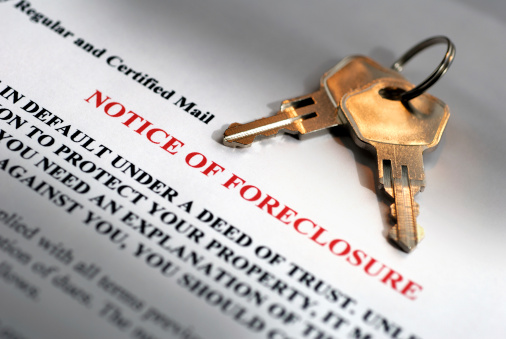Banking, finance, and taxes
Could Backdating Foreclosure Letters Kill Ocwen? (Updated)
Published:
Last Updated:
Ocwen Financial Corp. (NYSE: OCN) could be facing a massive legal and PR nightmare. If you do not believe there are now serious risks to the company, ask yourself what a drop of more than 20% out of the blue in the middle of a trading tells you — and taking the stock to new 52-week lows to boot!
Please note: This article has been updated to include details of the letter.
UPDATE 2- Ocwen has finally issued a press release to address this issue.
Reports broke that Ocwen backdated letters being sent out to homeowners regarding loan modifications and the like. Here is where the real damage could be, if the report is true: it is said to cover potentially hundreds of thousands of letters to borrowers.
24/7 Wall St. has included the New York State Department of Financial Services letter to Timothy Hayes, the General Counsel for Ocwen Financial Corporation. All members of the Ocwen board of directors have been copied on the three-page letter.
Ocwen shares were down by 26% to $19.10 at the first posting time, which would be lows not seen since 2012. Ocwen peaked at roughly $60 over the past year. UPDATE 1:46 p.m.: Shares were last seen at 1:46 p.m. down 19.8% at $21.05 on just over 12 million shares.
The New York State Department of Financial Services letter discusses denied loan modifications dated more than 30 days prior to the date that Ocwen mailed the letters, which only gave those borrowers 30 days from the date of the letter. The letter also noted that other cases showed Ocwen’s systems showed that borrowers facing foreclosure received letters with so-called cure dates that were months prior to receiving their letters.
Another issue is that Ocwen was accused of doing nothing to investigate or address the backdating issue when an employee questioned the accuracy of the firm’s letter dating processes and alerted the VP of Compliance. Then the department said that Ocwen ignored the problem for five months until the same employee raised the issue again.
More specific instances were outlined in the full letter.
Be advised that we had only seen the October 21, 2014, letter to Ocwen from the New York State Department of Financial Services. Here is the update below.
Ocwen made the following statement in response to a letter it received from the New York Department of Financial Services related to erroneously dated borrower correspondence, and subsequent media coverage of the DFS’s letter:
“Ocwen regrets that, due to software errors in our correspondence systems, we inadvertently sent improperly dated letters to some borrowers. As always, our goal is to avoid foreclosure. In the case of the 283 borrowers in New York who received letters with incorrect dates, 281 are currently borrowers with us. We are continuing to review the rest of the cases. We believe that we have resolved the letter dating issues that have been identified to date, and we continue our investigation as to whether there are additional letter dating issues that need to be resolved. We are working with and fully cooperating with DFS and the Monitor to address their concerns.”
Even after Tuesday’s drop, Ocwen had a market cap of $2.5 billion. The consensus analyst price target was $33.56 prior to this news development.
ALSO READ: Why One Analyst Sees IBM Falling to $125
We have included an image of the first page of the three-page letter below:
Let’s face it: If your money is just sitting in a checking account, you’re losing value every single day. With most checking accounts offering little to no interest, the cash you worked so hard to save is gradually being eroded by inflation.
However, by moving that money into a high-yield savings account, you can put your cash to work, growing steadily with little to no effort on your part. In just a few clicks, you can set up a high-yield savings account and start earning interest immediately.
There are plenty of reputable banks and online platforms that offer competitive rates, and many of them come with zero fees and no minimum balance requirements. Click here to see if you’re earning the best possible rate on your money!
Thank you for reading! Have some feedback for us?
Contact the 24/7 Wall St. editorial team.